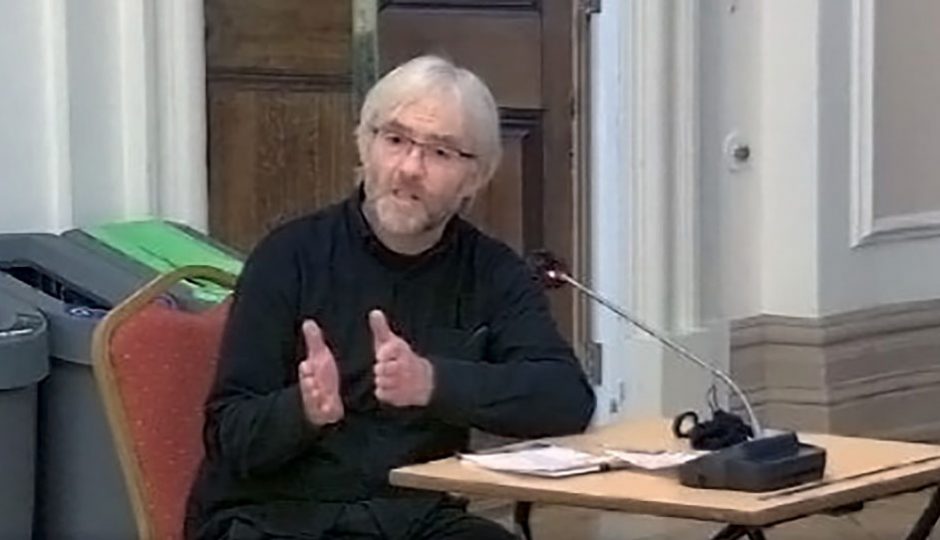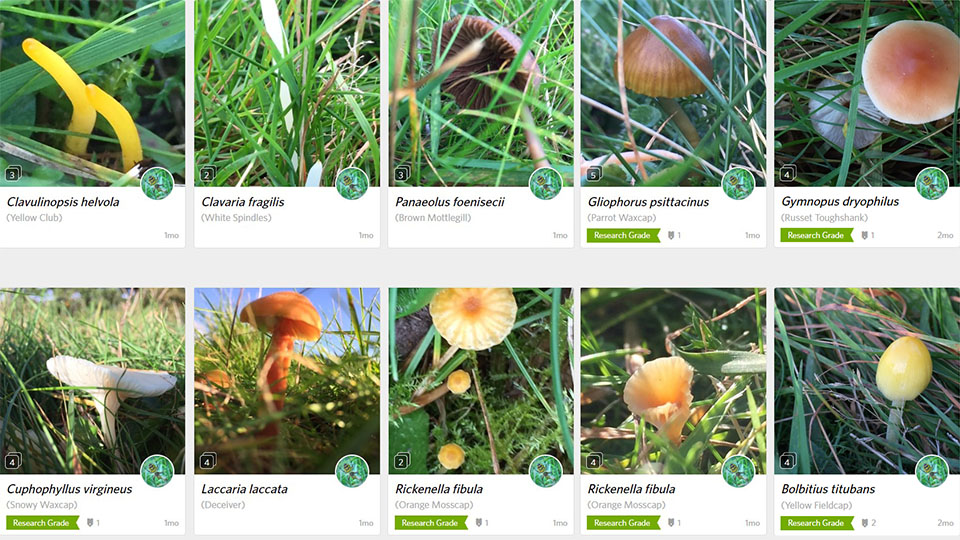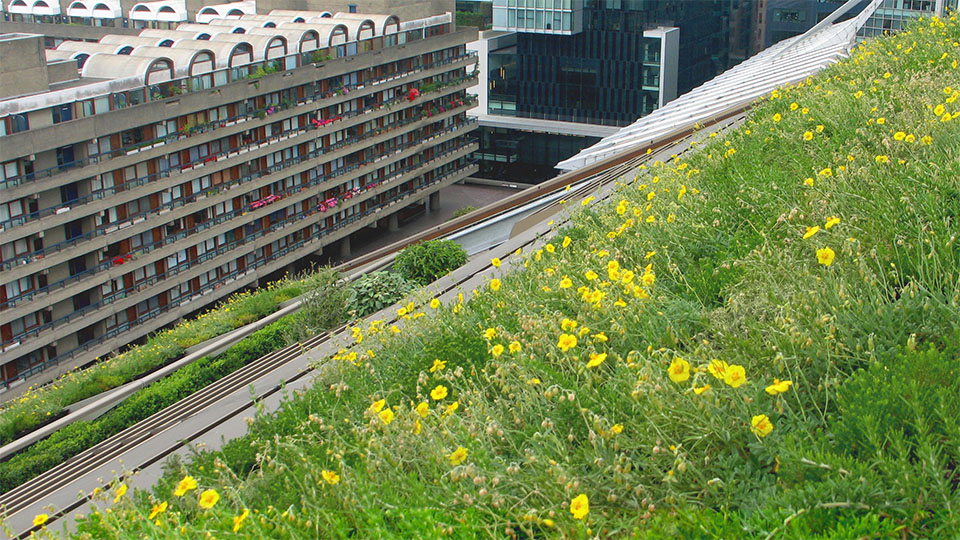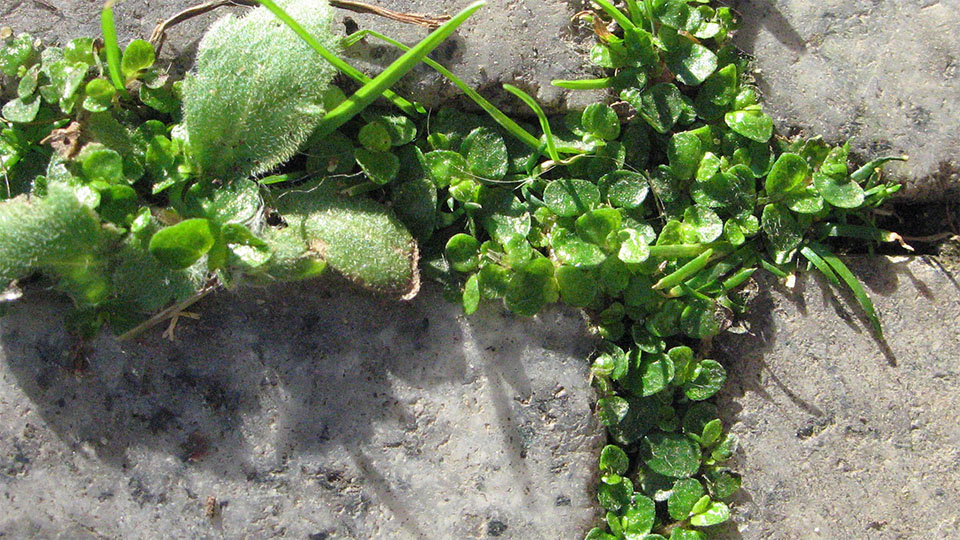

Environment, community and sustainability (including financial sustainability) are at the heart of Gelling Landscape Studio’s ethos.
For more than 30 years, Art’s motivation has been to change the culture of landscape architecture from within – working for established, industry-leading practices on major developments. As a new, independent practice, Gelling Landscape Studio can be wholly focussed on developing this ethos, on all projects, irrespective of size or scope.
We have, of course, signed up to the pledges of #LandscapeArchitectsDeclare… the climate emergency declaration, part of the wider #BuiltEnvironmentDeclares movement.
These pledges are not mere words:

“Raise awareness of the climate and biodiversity emergencies and the urgent need for practical action amongst our clients and supply chains.”
Since the 1990s, Art has approached suppliers to provide embodied Carbon and other environmental data, and ethical sourcing… an approach which is finally becoming more widespread. Work is still needed – especially around the potential for further imports of plant diseases via the nursery industry, and peat use.
“Advocate for faster change in our profession towards resilient and regenerative design practices and a higher Governmental funding priority to support this.”
Art actively engages with local politicians to provoke and encourage local change, and campaigning organisations nationally and internationally. Ongoing pro-bono campaigning includes: promoting cycle and pedestrian-friendly streets with Borough Councillors; a High Street streetscape and planting initiative; leading the establishment of an ambitious greenspace Friends Group aimed at grassland and habitat management; working with a local community growing group.
“Establish climate and biodiversity mitigation, adaptation and resilience principles as the key measure of our industry’s success: demonstrated through awards, prizes and listings.”
Through many years of working alongside ecologists and following the success rates of past projects, Art has tried and trusted methodologies for increasing local biodiversity through considered soil conservation strategies and species-dense planting techniques – an approach now finding greater prominence through the work of Japanese botanist Akira Miyawaki and others. Art has long advocated the low-cost, low-input regenerative management techniques researched after the UK’s Great Storm of 1987 using locally collected seed and management of grazing – as advocated in his projects in North Africa.
“Share knowledge and research to that end on an open source basis.”
Gelling Landscape Studio is always looking for opportunities to collaborate with other consultancies within landscape architecture and across disciplines. One target is establishing a carbon calculator applicable to landscape architecture. Our species records are shared via the open-source I-naturalist platform, and have been shared with Borough Ecologists for SINC Review.


“Evaluate all new projects against the aspiration to contribute positively to mitigating climate breakdown, and encourage our clients to adopt this approach.”
The benefits of landscape architectural projects are complex and hard to quantify. Gelling Landscape Studio is looking to trial, and where needed develop, a range of measurement techniques – where possible, working collaboratively with others.
“Preserve and protect existing irreplaceable landscapes and habitats whilst protecting and optimising areas of functional and biodiverse landscape in all developments.”
Evaluating, retaining (wherever possible), protecting and connecting existing habitat and other assets is fundamental to our work. It can take decades or even centuries for new habitats to establish, so it makes sense to retain what we have. The approach is also fundamental to ‘place-making’ – providing maturity, character and life to new development.
“Adopt a whole systems approach to landscape design recognising that soils, bacteria and mycorrhizal fungi are key factors for ecosystem survival and carbon sequestration.”
Soils are the foundations of the landscape and our health depends upon theirs. A strategy for soil condition and building should pre-empt any planting strategy on almost any project. Art has collaborated directly with some of the UK’s top experts in the fields of soil science and ecology since the early 1990s.
“Work to provide assessment tools for life cycle costing, carbon usage, biodiversity gains. Develop and promote post occupancy tools and measures to assist in the management of landscapes.”
Gelling Studio is looking to collaborate directly with specialists to develop tools for quantifying the environmental impacts, both positive and negative, of landscape design and implementation.


“In addition to working with mitigation, adaptation and resilience as primary tools, look to using regenerative design principles in the design of landscapes.”
Resilience and regenerative design have been fundamental parts of Art’s approach to soft landscape design since the 1990s. Current work includes species reintroduction and management of open grassland mosaic habitats within public open space; restoration of a natural river corridor within a town centre; and proposals to implement “leaky dam” systems to slow surface-water run-off in an urban water course.
“Collaborate with architects, engineers, contractors and clients to further reduce construction waste.”
Art’s experience leading landscape projects such as the London Olympic Stadium demonstrates his commitment to reduction of construction waste – incorporating granite dock edgings (which were due to be crushed), promoting buildability and safety on site (keeping site workers safe from contamination) and designing out waste (tens of thousands of tonnes of contaminated fill). His sustainable approach saved Balfour Beatty hundreds of thousands of pounds during the Legacy transformation of the Stadium.
“Promote low embodied carbon, and look to maximise carbon sequestering, responsible and sustainable use of water and biodiversity net gains in all projects.”
Soil strategy, planting selection and planting techniques to minimise the use of water (in construction and thereafter) and promote biodiversity are fundamentals of Gelling Landscape Studio’s ethos. In his own garden, Art is evaluating domestic-scale, natural soil conditioning techniques, with the aim of developing methodologies appropriate to commercial scale application.
“Minimise wasteful use of resources in landscape architecture and urban planning, both in quantum and in detail.”
In all the approaches outlined above, the principle is to reduce the consumption of resources. Demolition, energy and materials all cost money – and demand new resources to be mined, manufactured, transported and constructed. We support the “retro-fit first” approach and always consider retention, reuse and recycling of existing structures and materials in construction, maintenance and end-of-life phases. We find this approach helps developers establish unique places with undeniable character, saves them money, and works best for the wider environment.

| Cookie | Duration | Description |
|---|---|---|
| cookielawinfo-checkbox-analytics | 11 months | This cookie is set by GDPR Cookie Consent plugin. The cookie is used to store the user consent for the cookies in the category "Analytics". |
| cookielawinfo-checkbox-functional | 11 months | The cookie is set by GDPR cookie consent to record the user consent for the cookies in the category "Functional". |
| cookielawinfo-checkbox-necessary | 11 months | This cookie is set by GDPR Cookie Consent plugin. The cookies is used to store the user consent for the cookies in the category "Necessary". |
| cookielawinfo-checkbox-others | 11 months | This cookie is set by GDPR Cookie Consent plugin. The cookie is used to store the user consent for the cookies in the category "Other. |
| cookielawinfo-checkbox-performance | 11 months | This cookie is set by GDPR Cookie Consent plugin. The cookie is used to store the user consent for the cookies in the category "Performance". |
| viewed_cookie_policy | 11 months | The cookie is set by the GDPR Cookie Consent plugin and is used to store whether or not user has consented to the use of cookies. It does not store any personal data. |